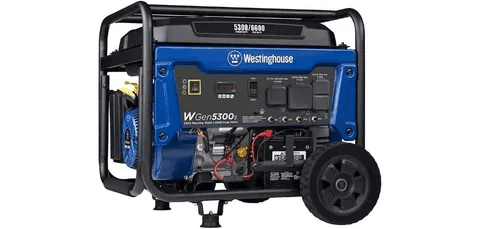Meta Description: Learn whether a 5000-watt generator would be able to operate your well pump. Understand the concept of surge watts, running watts, and sizing different well pumps in order to get informed on the available water in case of mains interruption.
When dealing with power outages, access to their water supply is one of the most pressing issues of the homeowners with well water. One of the most common queries that will be made is whether a 5000-watt generator will bring sufficient power to the well pump. The solution varies with a number of issues such as the kind and the capacity of your well pump, the amount of power that the well pump needs and the appliances that you must operate along with it..
Understanding Well Pump Power Requirements
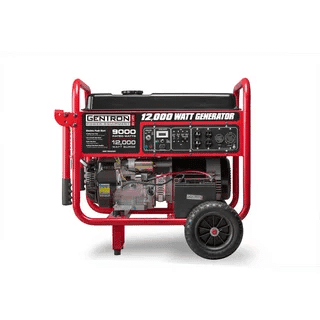
Starting vs. Running Watts: The Critical Difference
Well-pumps such as most other motor-driven appliances require a large initial burst of power to energise the motor. This surge also referred to as starting watts or surge watts can be 2-3 times the running watts of the pump. This, however, is important to understand when choosing a generator.
Running Watts: The constant power required after the pump has started Running Watts: The sudden extra power requirement during the starting of the pump
As an illustration: a standard 1 HP well pump can need:
- Running watts: 1500 watts
- Base watts: 3,750 watts
Power Consumption by Well Pump Type
All the types of well pumps have different requirements regarding the power:
Deep Well Submersible Pumps:
- Running watts:750-1,500 watts
- Starting watts: 2,000 5,000 watts
Centrifugal Pumps:
- Running watts: 800-1300 watts
- Starting watts: 2,200-4,500 watts
Jet Pumps:
- Running watts: 700-1,100 Watts
- Starting watts: 1,800 watts-3,000 watts
Shallow Well Pumps:
- Running watts: 600-1,000 watts
- Lyle Starting watts: 1,500-2,500 watts
Will a 5000 Watt Generator Run Your Well Pump?
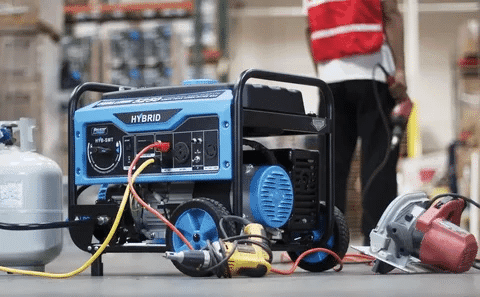
The Short Answer: Yes, For Most Pumps
Most well pumps can get an easy go with a 5,500-watt generator such as a 1 HP submersible pump. Because 5000 watt generators are near this capacity, they are capable of supporting most of the common well pumps in a home, though with a couple of caveats.
Calculating Generator Requirements
In order to make sure that a 5000-watt generator can suit your particular pump:
Step 1: Find the HP of Your Pump Most residential well borders between 1/2 HP and 2 HP.
Step 2: Capacity of Power Requirements
- HP Lb: Pump 1/2: 900W (running), 1,500-3,000W (starting)
- 1 HP pump: 1.5kw running, 3.75kw start
- 2 HP pump run 2500W start 6000-7500W
Step 3: Safety Buffer It is noted to exceed the surge wattage by 1.25 times to take care of fluctuation in power and environmental conditions..
What Size Pumps Can a 5000W Generator Handle?
A 5000-watt generator can reliably power:
1/2 HP Well Pumps: These easily meet starting and running needs 3/4 HP Well Pumps: These will run most of the pumps with proper sizing 1 HP Well Pumps: These can manage most, although closer to the upper limit 2 HP Well Pumps: This will not run most pumps as it probably will use more starting power than a 5000W generator can provide
Factors Affecting Generator Performance
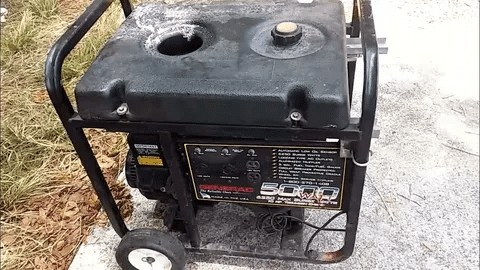
Pump Type and Efficiency
More efficient pumps normally have fewer power requirements compared to the older ones. low starting surge requirements Very high speed pumps are also more likely to have lower starting surge requirements than single-speed pumps.
Well Depth and Water Pressure
Greater depth of wells and high pressure needs consume more power. The power requirement of a well pump is variable depending on the depth of water, the pressure of a pipe and a number of environmental factors.
Simultaneous Appliance Use
It also becomes healthy practice to consider other loads when computing the size of a generator to use in the well pump. In case you want to run other appliances parallel to each other e.g.:
- Refrigerator: 800W
- Lights: 200W
- Fans: 200W per fan
These you will have to include in your total power needs.
Optimal Generator Sizing Strategy
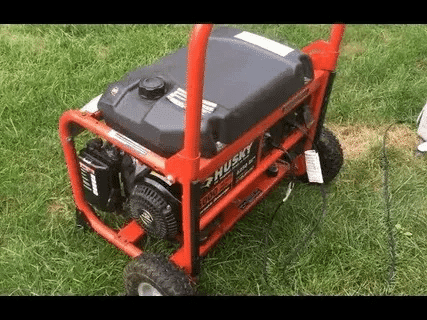
The 20-30% Rule
Selecting a generator 20-30% greater than optimum pump power will produce a trouble free operation without generator overloads. This buffer may be taken into account as:
- Voltage fluctuations
- Efficiency losses
- Environmental factors
- Aging equipment
Recommended Generator Sizes by Pump Type
1/2 HP Pumps: 2500-3000 watt minimum generator 3/4 HP Pumps: 3500-4000 watt minimum generator 1 HP Pumps: 4500-5500 watts generator minimum 2 HP Pumps: 6000-7500 watts generator minimum
Installation and Safety Considerations
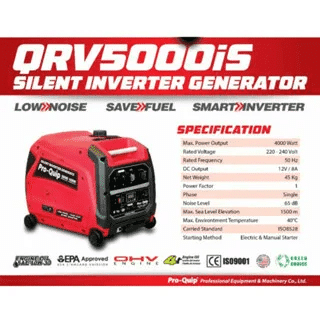
Proper Generator Placement
Place your generator at least 20 feet away of your residence and make it ventilated. Do not use a generator in enclosed places or indoors to avoid carbon monoxide dangers.
Electrical Connections
We plug in our generator to our homes electrical system via a transfer switch which is safe. It avoids backfeeding that is hazardous to utility line workers and may ruin your generator.
Regular Maintenance
Always service your generator as recommended by the manufacturer, frequent change of oil, changing air filters, maintaining fuel system.
Cost Analysis: Generator vs. Grid Power
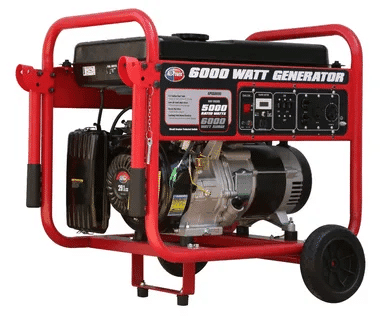
Operating Costs
Running an 8-hour well pump of 2HP with the use of a diesel generator will cost you 4.64 dollars. To a long term usage, these expenditures can be quite considerable:
- 8-hour daily: 4.64
- Running cost: 139.20/month
- Yearly usage: 1700 dollars
Fuel Efficiency Considerations
At half load the diesel generators usually guzzle 0.5-0.7 gallons per hour. The average price of diesel is 3.148 dollars per gallon and when such an outage occurs it puts fuel cost into consideration.
Alternative Power Solutions
Solar Generators
The solar backed generators also provide solar backup services and with them you can be guaranteed of having water at all times even when power is out. The start up costs are quite high but save on fuel charges and offer silent performance.
Dual-Fuel Generators
Fuel flexibility and possibly cost of operation, during prolonged outages, is achieved by using generators capable of using both gasoline and propane.
Troubleshooting Common Issues
Generator Won’t Start the Pump
Provided that your 5000W generator is not sure of putting your well pump in running condition:
- Make sure that the generator is warmed up
- Make sure that all connections are secure
- Make sure that the generator is not overloaded with other appliances
- Look at a soft-start device to minimized start-up current
Frequent Tripping
In case of frequent tripping of the circuit breaker of the generator:
- The pump can be pulling excessive power than expected
- Look in pump to see if it is binding or cavitating
- Make sure to check the real producing capacity of the generator
Maintenance Tips for Optimal Performance
Generator Maintenance
By doing routine maintenance, your generator will be thus able to generate full output of its rated power:
- Oil change 50-100 hours of work
- Seasonal change of air filters
- Annual clean fuel system
- Monthly test run
Well Pump Maintenance
Caring about your well pump will create effective functioning:
- Inspection of pressure tank once a year
- electrical connections Check
- Check water pressure
- Periodic inspection by professionals, twice or three times a year
When to Consider Upgrading
Signs You Need More Power
Consider up-sizing to a bigger generator in case you have the following problems:
- The problem of excessive overloads of generators is common.
- Failure to initiate the pump assuredly
- A necessity to operate more appliances
- Intentions to embiggening to a bigger pump
Future-Proofing Your Investment
Opting between a generator: take into account your long-term requirements:
- Possible additions to home
- Well designed system upgrades
- Need to have a complete house backup power system
- Variation of family size
Environmental and Efficiency Considerations
Noise Levels
In residential parts, the noise of the generator might be something to worry about. Search models that have noise level of less than 65 decibels to make their performance quieter.
Emission Standards
Select generators which are in line with the current EPA emission standards to reduce the impact on the environment and also to be within the regulations of the community.
Fuel Storage
Generator readiness needs the proper storage of the fuel:
- Gasoline: use fuel stabilizers
- Change the available stock of fuel periodically
- Fuel should be stored in authorized containers
- Longevity of storage: consider propane
Conclusion
The 5000 watts generator is capable of operating most of the residential well pumps, especially those that are 1 HP or even less. But to be successful, you would have to check the generator capacity with the starting and running of your particular pump as well as any other loads of electrical current you would want to use at the same time.
The trick is to get to know the precise power demands of your well pump and make sure you get a generator with a sufficient surge capacity. The surge wattage of well pumps is high, therefore, to have a smooth running operation, selecting a sizable generator that is 2030 percent of peak power of the pump will ensure that it is not overloaded.
On the typical home with 1/2 HP to 1 HP well pumps, the 5000-watt rated generator will have plenty of juice and an extra load capacity. Yet, in case you have a 2 HP pump or intend to run multiple high-wattage equipment, you should consider a 7000-watt or bigger generator.

